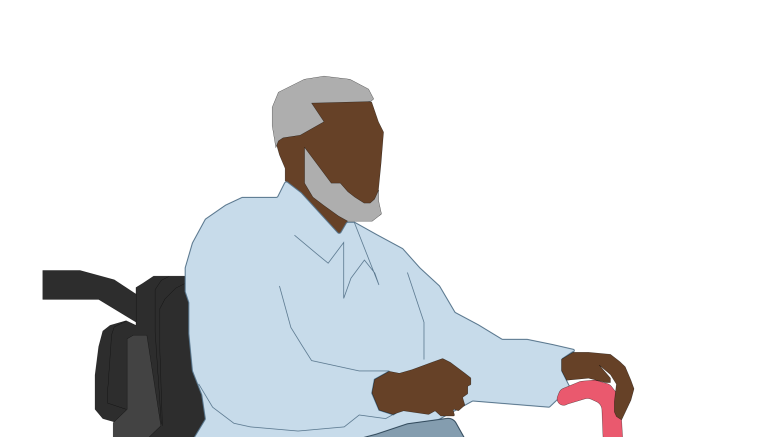Social isolation and loneliness significantly affect older adults’ longevity, physical health, mental health and overall quality of life. Racialized older adults experience loneliness in unique ways, with Black older adults being nearly twice as likely as white older adults to report having no close friends.
Blessing Ojembe is an assistant professor in the U of M’s faculty of social work whose research focuses on loneliness and social isolation among Black older adults.
Her interest in the aging experiences of Black older adults was sparked while living in Nigeria.
“People were leaving the country, migrating abroad, leaving their older adults alone behind in Nigeria,” Ojembe said. “It got me thinking […] how are these older adults dealing with this experience of being alone, having all their children leave them and living alone and the impact of loneliness?”
Despite stereotypes that racialized older adults are protected from loneliness due to being more likely to live in multigenerational families with traditional family customs and intergenerational supports, a study of older adults in the U.K. from 2021 found that 11 per cent of Black African older adults and 16 per cent of Black Caribbean older adults experience loneliness.
In her PhD thesis, “Aging Black and Lonely: A Narrative Experience of Black Older Adults in Canada,” Ojembe found that Black older immigrants may struggle to integrate and adapt to their new country, leading to loneliness. They may have lower social capital, the support and resources gained from relationships and networks, leading to reduced socioeconomic status, a key determinant for loneliness.
Ojembe’s current research focuses on existing programs and their inclusivity for Black older adults.
“A lot of the programs are not culturally adaptable to Black older adults,” Ojembe said. “There’s this lack of a sense of belonging when they come to those programs.
“There’s a yearning for something that specifically speaks to their culture, something that touches on who they are, their identity, the things they can identify with.”
Currently, Ojembe is working to develop an adult day program for Black older adults in Winnipeg. Adult day programs offer older adults social activities, recreation, exercise and health monitoring, while also providing respite to their caregivers. These programs are crucial in helping older adults remain in the community for as long as possible, as opposed to formal care facilities, by supporting their well-being.
Ojembe also recommends creating mentorship programs for Black older adults who are new immigrants to Canada. Such a model would aim to help older adults build skills, navigate their communities and develop a sense of belonging, especially those who migrated alone.
In a 2019 study, Ojembe examined the use of televisions, radios and telephones as tools for reducing loneliness among Nigerian older adults. She explained that prior to 1990, older adults in Nigeria had extensive and rich relationships with family members, often in traditional communal living settings, and rarely experienced loneliness. The movement of Nigerian young adults to urban centres and the popularity of cell phones among youth have reduced older adults’ opportunities to engage with others and potentially increased loneliness.
In this modern landscape, televisions, radios and telephones play an important role in facilitating interaction. Nevertheless, Ojembe highlighted the potential of technology to further combat loneliness by adapting to the needs of older adults, suggesting age-friendly devices, workshops teaching older adults to use smartphones and television and radio programs targeted at older adults.
“It is important that we give attention to aging research,” Ojembe said. “Especially in social work, you see a lot of researchers focus more on children, women, young adults, but again, the older adults are oftentimes relegated to the background.
“We need more activists in aging that would help to take on this message and pass it across and help to improve the overall health and well-being of older adults, because they depend on us.”



